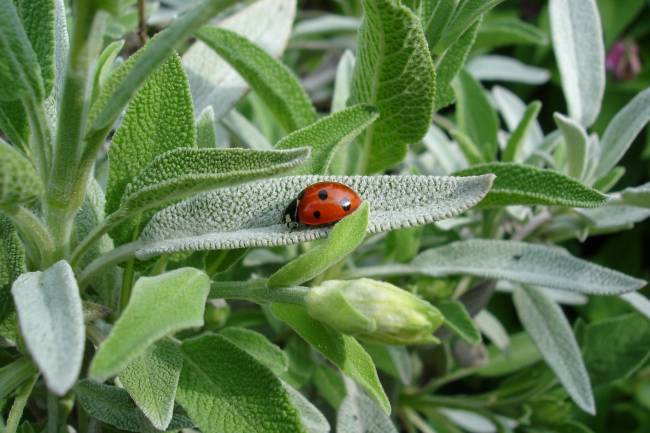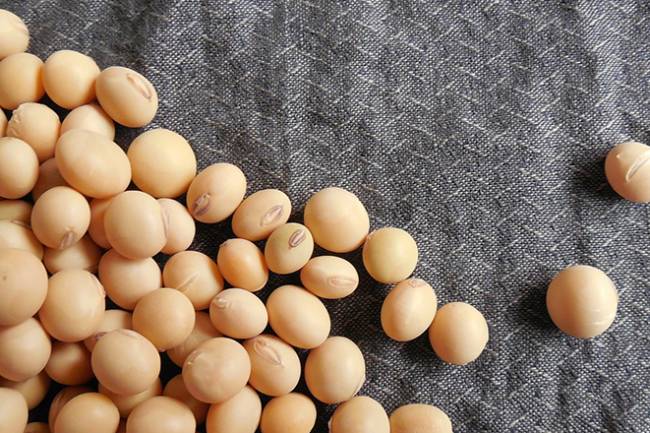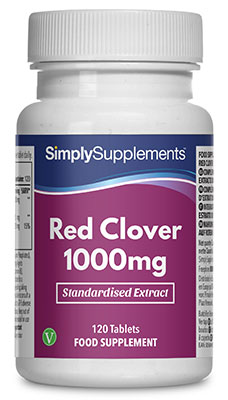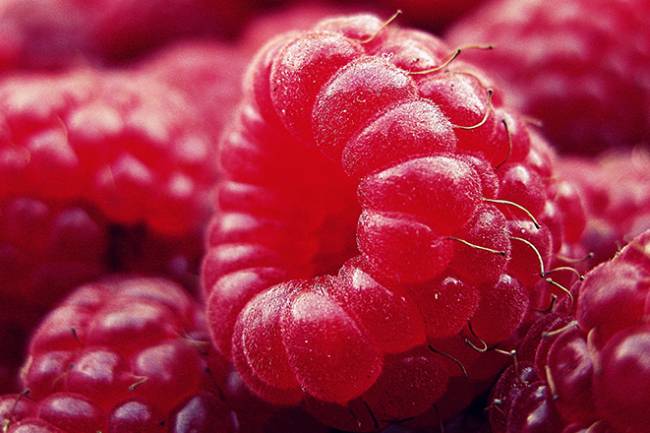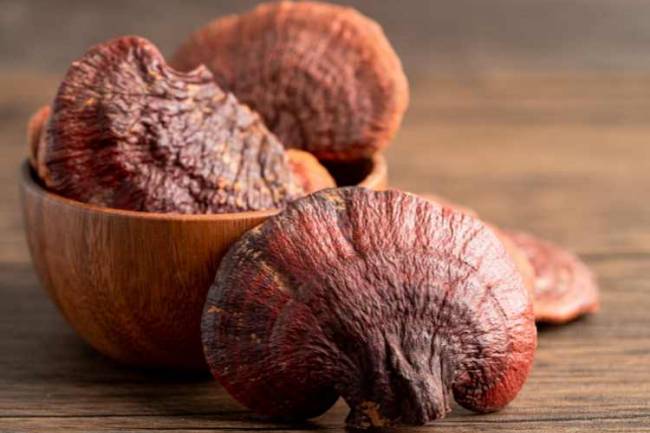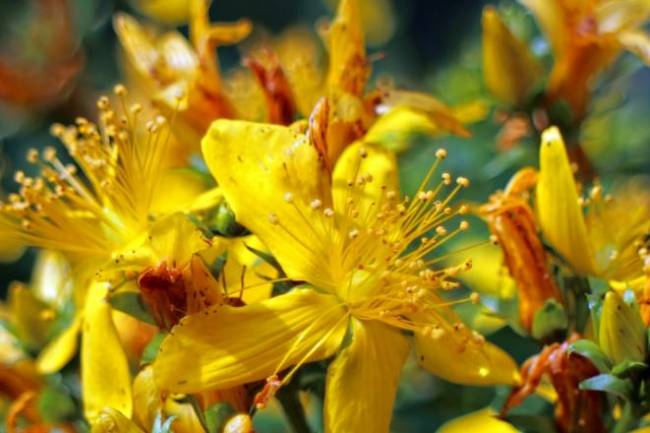How Red Clover Isoflavones Affect the Menopause

What is Red Clover?
Also known as Trifolium pretense, red clover is a flower native to Europe and North Asia. It’s long been used in medicine to solve a wide range of issues, from inflammation to Athlete’s Foot. This can be delivered either using the flower directly or by brewing the flower into a herbal tea.
Many of these treatments use the whole plant, however when it comes to menopause treatment it is the “isoflavones” which are believed to be most beneficial. Isoflavones are plant-based compounds found within red clover and, more commonly, soya beans. Isoflavones act as a phytoestrogen – a naturally-occurring oestrogen substitute. The body reacts to phytoestrogens in a similar manner to human estrogen. Naturally, the isoflavones can be extracted from the plant and turned into an easily-administered supplement.
This phytoestrogenic characteristic has made the supplement popular once again, but there’s much more to red clover isoflavones to examine, even within these hormonal properties.
Menopausal Symptoms
One area red clover is known to help with is hot flushes, otherwise known as vasomotor symptoms: a study has shown that an 80mg dose of red clover isoflavones resulted in a 44% decrease in hot flushes in 30 women. This all occurred within 12 weeks of taking the supplement, on women who were receiving up to five hot flushes a day. Some trials, however, have noted that participants improve even when taking placebos, suggesting there may be a mental component to dealing with these flushes.
A different study in 2005 has stated that red clover isoflavones “significantly decrease menopausal symptoms,” which includes vaginal cytology – measuring the health and growth of cells. Whilst it is not confirmed, this may mean this supplement may be able to help with the vaginal atrophy that comes about in later life.
Heart Health
A rise in cholesterol is often seen during the menopause, expressed as a rise in blood triglycerides. The medical journal Stroke published a study stating that postmenstrual women with a high level of triglycerides are almost twice as likely to suffer a stroke. This said, research has found that red clover can decrease the amount of triglycerides and other forms of bad cholesterol. As oestrogen has a role in cholesterol control in the body, this is another example of the phytoestrogen characteristics of the isoflavones taking effect.
Overall, the contribution to red clover isoflavones to heart health is mainly indirect, focusing on cholesterol and blood pressure. Research from The Journal of Clinical Endocrinology & Metabolism found that isoflavones increased arterial compliance (the ability of vein walls to expand and contract) by 23%, compared to a placebo. Compliance affects blood pressure by allowing veins to react less stressfully to pressure changes, which has a knock-on effect of increasing the longevity of veins.
Interestingly, one study has found that red clover isoflavones can “favourably influence blood pressure and endothelial function” in postmenstrual women diagnosed with type 2 diabetes. However, it is important to appreciate that this is a singular piece of research which combined isoflavones, post menstruation and diabetes. This, combined with the small sample size, means that more information needs to be gathered before any conclusive outcomes.
Bone Health
One symptom of menopause is a lowering of bone density, which can cause issues in later life with osteoporosis – brittleness and fragility in bones. There are many treatments and preventative measures to help retain as much density as possible, including red clover. Its ability to do such has been scientifically tested, with optimistic results.
A 2001 study gave 46 postmenopausal women between 28.5 and 85.5mg of phytoestrogen from red clover daily, over the course of six months. The results showed that participants had a “significant increase” in the density of their radius and ulna bones (the two main bones in the forearm). However, this study did not have a control group to compare results against and, as such, recommends that “interpretation of the results [be] taken cautiously.”
Mental Health
It’s well known that changing hormone levels during the menopause can lead to mood swings or changes in behavior. While this is normal and usually harmless, more serious cases of depression or “menopause blues” can set in. This is particularly common in those who have suffered from clinical depression in the past. Sufferers of particularly severe PMS in younger life may also be prone to wider mood swings during the menopause.
A small amount of research has been done in the area, with some optimistic results: a 2010 study gave red clover isoflavones supplements to women displaying anxiety and depressive symptoms. After 90 days they found a significant reduction of symptoms of both afflictions. This piece of research may open the door to further investigation of how the supplement may affect mental health.
Skin Care
Even the skin can be affected by hormones. A form of oestrogen known as estradiol is thought to contribute to ageing. Most visibly it can cause sagging and wrinkled skin, but it can also result in oily skin, and facial hair growth. This is because, in the absence of estrogen, testosterone – the male hormone – can have a greater effect on the body.
Research from the Medical University of Vienna showed that, after 90 days on red clover isoflavone supplements, there was a “better subjective improvement of scalp, hair and skin status.” Though subjective, participants reported higher satisfaction on the supplement than while using a placebo.
Levels of oxidative stress rise during the menopause, as oestrogen has a natural antioxidative effect on the body. This can lead to a number of negative effects (including the aforementioned heart and bone problems) but it also does damage to the skin, causing it to age faster.
However, red clover is shown to have similar antioxidative effects, countering some of the damage taking place and keeping your skin in good condition. Research was conducted into a number of isoflavone sources including red clover, and found that the four tested all had antioxidative effects. Red clover, though, was observed to have one of the highest inhibition rates against oxidative stress.
Conclusion
Red clover isoflavones act on a massive range of menopausal effects, all over the body - it’s easy to be enthusiastic about its abilities as a natural stand-in for oestrogen. For those who may be having a tougher time during this transition than others, this may be an option that’s gentle on the body, when combined with other hormone treatments.
Calming hot flushes, helping ease blood pressure, supporting bone mass and having an antioxidant effect are just some of the benefits of adding a red clover isoflavone supplement to your diet.
Sources:
https://www.webmd.com/vitamins/ai/ingredientmono-308/red-clover
https://www.healthline.com/health/red-clover-menopause
https://www.ncbi.nlm.nih.gov/pubmed/16373244
https://journals.plos.org/plosone/article?id=10.1371/journal.pone.0176590
https://www.ncbi.nlm.nih.gov/pmc/articles/PMC1780039/
https://www.sciencedirect.com/science/article/pii/S0378512202000804
https://www.sciencedirect.com/science/article/pii/S0021915099004372
https://www.sciencedirect.com/science/article/pii/S0960076005000658
http://journals.sagepub.com/doi/abs/10.1258/mi.2007.007033
https://www.sciencedirect.com/science/article/pii/S0378512209003958
https://academic.oup.com/jcem/article/84/3/895/2864128
https://www.tandfonline.com/doi/abs/10.1080/09513590500361192
https://www.ahajournals.org/doi/abs/10.1161/STROKEAHA.111.641324
https://onlinelibrary.wiley.com/doi/abs/10.1046/j.1463-1326.2003.00282.x
https://link.springer.com/article/10.1208/ps050220
https://www.hindawi.com/journals/ogi/2011/949302/abs/
https://www.menopause.org/for-women/menopauseflashes/mental-health-at-menopause/depression-menopause
https://www.sciencedirect.com/science/article/pii/S0378512209003958

 Richard
Richard 